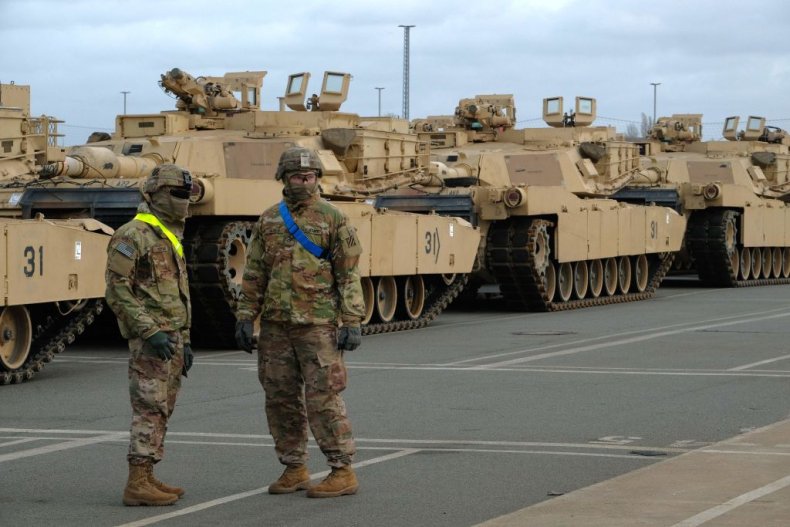DANNY SJURSEN
There is a paradox underpinning American politics and its society right now. The U.S. must be the only country in the world where even when some wars end—like Afghanistan—government officials still elect to spend more money on the military. Less war, more war spending—a uniquely perplexing American formula as income disparity and homelessness increases.
Congress recently approved a super-sized record "defense" spending bill—known as the National Defense Authorization Act (NDAA)—authorizing $768 billion for the Pentagon. This doesn't include the additional $25 billion Congress added beyond what President Joe Biden's team requested. That Donald Trump-exceeding figure surprised even top-tier military leaders—including Chair of the Joint Chiefs Mark Milley.
Overall, this year's NDAA pushed official defense spending above $750 billion. And that's typically the number used by both opponents and proponents of the bill. Only the figure is deceptive and wildly inaccurate. When all national security-related spending—including intelligence agencies, Homeland Security, Department of Energy nuclear programs plus health and disability for veterans, the real annual budget hovers around $1.3 trillion. That's far higher than during the Korean or Vietnam Wars and is roughly three times what China spends on its military.
Simultaneously, both Republicans and Democrats are squabbling over whether to curtail modest spending to fight real national security threats like future pandemics and climate change in Biden's $3.5 trillion reconciliation bill. That sort of strategic obtuseness simply doesn't add up. Yet when even moderate Democrats fold on social spending but support inflated military budgets, it's worth looking at some of the tradeoffs and opportunity costs of all that war spending. A famed Republican president and West Point-trained five star general—Dwight D. Eisenhower—said as much way back in 1953. Ike lamented such tradeoffs in a speech stating: "Every gun that is made, every warship launched, every rocket fired signifies, in the final sense, a theft from those who hunger and are not fed, those who are cold and are not clothed."
The truth is two-decades worth of post-9/11 war budgets haven't benefited average Americans. Instead, it's incurring crippling costs on the citizenry in the form of social programs cut (or stillborn), civil liberties curtailed and soldiers squandered in one failed boondoggle after another.
Let's start with that $25 billion "bonus" gift to the Pentagon and to the corporate war industry. That figure is slightly more than the entire NASA space program.
The bill also includes more than $12 billion for F-35 combat aircraft, a weapons system so immensely over-budget, behind schedule and laden with technical flaws that late Senator John McCain—hardly a defense dove—called the whole fiasco a scandal and a tragedy. Unsurprisingly, $12 billion is equivalent to about one and a half Head Start programs—which offers educational, nutritional and social services to low-income preschoolers.
Or take the Environmental Protection Agency (EPA)—its annual budget ($9.2 billion) clocks in about $4 billion below the cost of a single modern aircraft carrier. By the way, Washington currently fields some 20 large and small carriers. China? Four.
 Military personnel unload M1 Abrams Fighting tanks of the 2nd Brigade Combat Team, 3rd Infantry Division on Feb. 21, 2020.PATRIK STOLLARZ/AFP VIA GETTY IMAGES
Military personnel unload M1 Abrams Fighting tanks of the 2nd Brigade Combat Team, 3rd Infantry Division on Feb. 21, 2020.PATRIK STOLLARZ/AFP VIA GETTY IMAGESAdditionally, the NDAA continues funding an absurdist multi-decade $1.7 trillion "modernization" program for an already-inflated nuclear arsenal that's utterly unusable (unless we want to start a nuclear war) and unnecessary (the U.S. nuclear stockpile remains 13 times larger than China's). Nuclear wars can't be won, shouldn't be fought and America's irrational arsenal equates to at least 40 years' worth of universal tuition-free college education for Americans.
Only one group has meaningfully benefited from 20-plus years of U.S. hyper-militarism—the war-profiteers. Here we're talking truly mind-boggling numbers. Recent reports show that an investment of $10,000 in defense stocks when the war on terror began would now be worth almost $100,000.
There's something grotesque behind such statistics, and average Americans should be absolutely outraged by these blood money windfalls. Because here's the real rub: The recent collapse of Afghanistan is proof positive that the U.S. is definitively losing these campaigns—only the war industry won, raking in blood money-billions, while 7,000-plus American troops—including several under my command—did the actual bleeding for some $30-40,000 a year.
It is long past time to rebalance national priorities in ways that benefit people and bend toward decency. And mind you, that clarion call is coming from a longtime soldier and two war veteran, who shares an alma mater with that ever prescient old president—Ike.
Seeing as corporate advertising sound bites seemly infuse every aspect of American society, let me suggest a more accurate slogan for the military industrial complex's public face: "The Department of Defense: 'This is why we can't have nice things.'"
No comments:
Post a Comment